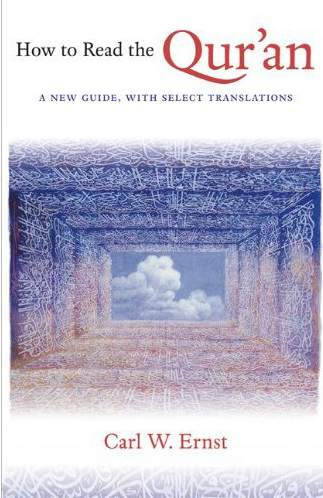
Carl Ernst, How to Read the Qur’an: A New Guide, with Select Translations. University of North Carolina Press, 2011
by Kristian Petersen, New Books in Islamic Studies, February 27, 2012
Recent events revolving around the Qur’an, such as the accidental burning of it in Afghanistan or the intentional provocations of radical American Christian pastors, suggest that Westerns often still fail to understand the role of the Qur’an in Muslims lives. On occasion, the mere suggestion of having Westerners read the Qur’an in order to gain a better understanding of its message has incited anger and lawsuits, as was the case at the University of North Carolina in 2002.
The inability to bridge these cultural differences and the many inherent challenges the Qur’an possesses inspired Carl W. Ernst, Kenan Distinguished Professor of Islamic Studies at the University of North Carolina, to write his new book How to Read the Qur’an: A New Guide, with Select Translations (University of North Carolina Press, 2011). He wondered how should the non-Muslim read the Qur’an? This comprehensive introduction presents a literary historical approach that enables the reader to understand how the Qur’an’s initial audience encountered it through a chronological reading, traditionally understood through the early Meccan, later Meccan, and Medinan periods of Muhammad’s career. It introduces a reading that understands the structure and form of the text as informing the meaning. Thus, Ernst examines the symmetry and balanced composition of verses, the tripartite structure of certain chapters, intertexuality within the Qur’an, and uses rhetorical analysis and ring composition as a means to approach and understand seemingly contradictory religious claims. Ernst’s text is engaging and informative while achieving its goal of making the Qur’an accessible to the non-Muslim. His new book will certainly motivate a future group of Qur’anic studies scholars and will allow the uninitiated reader to better understand what the previously veiled text says about the cosmos and Muslims position in it.
Note: To hear an audio interview with Carl Ernst about his book, click here and scroll to the bottom.